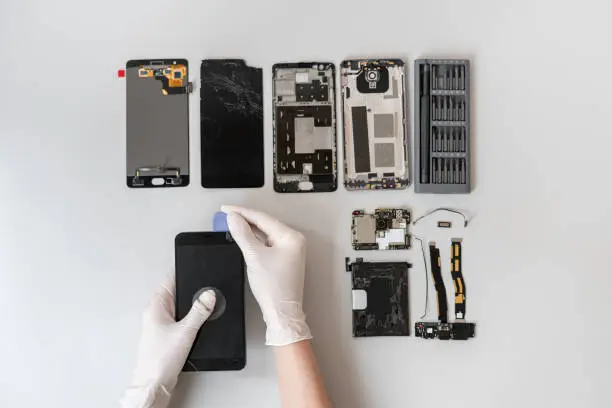Our smartphones are more than just devices for making calls or sending texts—they’re now hubs of personal and financial information, home to sensitive data such as banking details, private conversations, and stored passwords. With cybersecurity threats on the rise, it’s crucial to take proactive steps to secure your smartphone from malicious attacks. Here are the top five security tips every smartphone user should know to protect their data and privacy.
1. Enable Two-Factor Authentication (2FA)
One of the most effective ways to safeguard your smartphone accounts is by enabling two-factor authentication (2FA). With 2FA, you add an extra layer of protection by requiring a second form of verification—such as a code sent to your phone—before you can log into your account. Even if a hacker manages to obtain your password, they won’t be able to access your account without the secondary code.
Many services, including Google, Facebook, and banking apps, offer 2FA as an option. Be sure to enable it wherever possible, especially for accounts that store sensitive information, like your email or financial apps.
2. Use Strong Passwords or Biometrics
Using a weak password is one of the easiest ways for hackers to gain access to your smartphone. Avoid using simple or easily guessable passwords like “123456” or “password.” Instead, opt for longer, complex passwords that include a mix of letters, numbers, and special characters. If remembering multiple passwords is difficult, consider using a password manager to store them securely.
For added security, many smartphones now offer biometric authentication options such as fingerprint scanning or facial recognition. These features provide an extra layer of protection that’s more secure than a password alone. Enable biometrics where possible to enhance the security of your device.
3. Be Cautious with App Permissions
Many apps request access to various features on your smartphone, such as your camera, microphone, contacts, or location. While some permissions are necessary for the app to function properly, others may not be essential and could potentially put your privacy at risk.
Before granting permissions to an app, take a moment to review which features it wants access to and whether they’re necessary for the app’s operation. For example, a photo editing app doesn’t need access to your location or contacts. You can manage app permissions in your phone’s settings to restrict what data each app can access.
4. Keep Your Software and Apps Updated
Software updates often include security patches that fix vulnerabilities in your smartphone’s operating system or apps. Hackers frequently exploit outdated software to gain access to devices, so it’s important to keep both your operating system and apps updated regularly.
Make sure to enable automatic updates for your smartphone’s operating system, and check the app store for updates to installed apps. Installing these updates promptly can prevent potential security breaches and keep your device safe from malware.
5. Avoid Public Wi-Fi for Sensitive Transactions
Public Wi-Fi networks, such as those found in cafes, airports, or hotels, are convenient but often lack proper security measures. Hackers can intercept your data on public Wi-Fi, making it risky to use for sensitive activities like online banking or accessing personal accounts.
Whenever possible, avoid using public Wi-Fi for transactions that involve sensitive information. Instead, use your mobile data connection or a virtual private network (VPN) to ensure your connection is secure. A VPN encrypts your internet traffic, making it much harder for hackers to intercept your data, even on unsecured networks.

